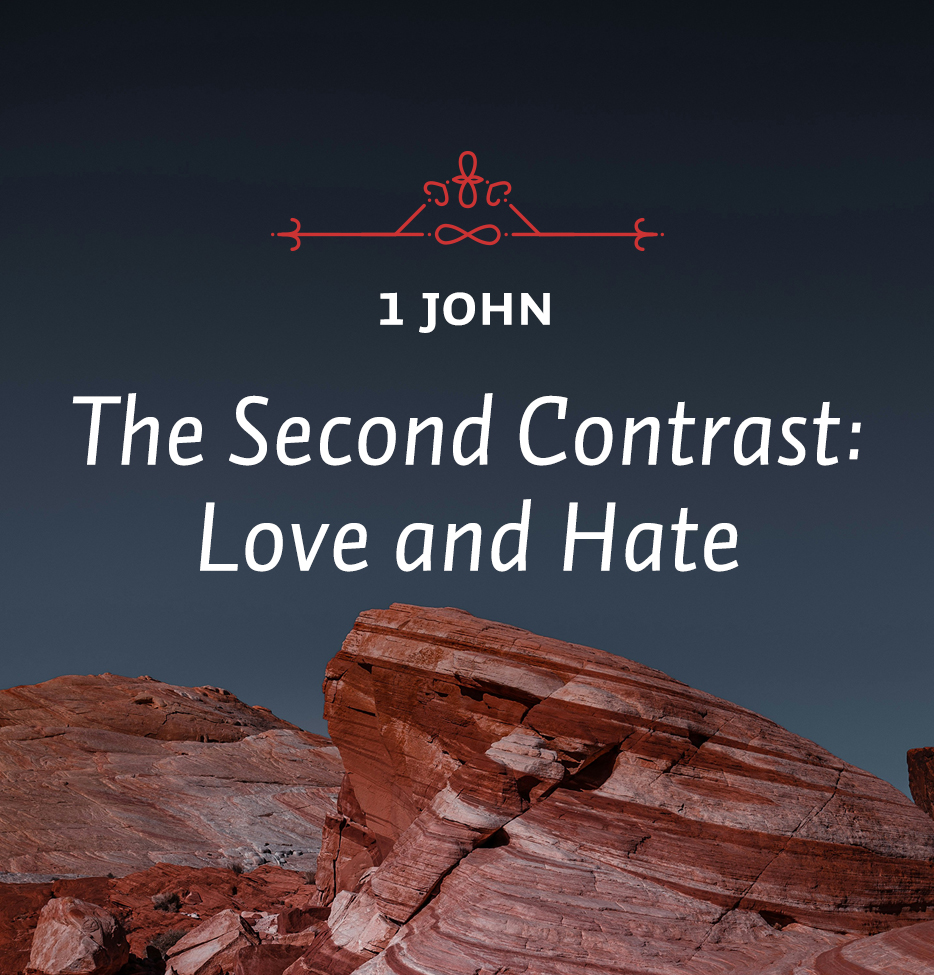Here John is in perfect accord with the Lord’s teaching regarding murder as found in the Sermon on the Mount. Jesus said, “Ye have heard that it was said by them of old, Thou shalt not kill and whosoever shall kill shall be in danger of judgment; but I say unto you that whosoever is angry with his brother without a cause shall be in danger of judgment; and whosoever shall say to his brother, Raca, shall be in danger of the council; but whosoever shall say, Thou fool, shall be in danger of hell fire” (Matt. 5:21-22).
In Christ’s day the rulers of Israel had taken the sixth commandment of the Decalogue, which said, “You shall not kill [murder],” and had combined it with a verse in Numbers that demanded death for anyone who unlawfully took another person’s life (Num. 35:30). The implication was that the sixth commandment referred to nothing more or less than this ultimate and external act. “But is this what murder is?” asked Jesus. Is it nothing more or less than this ultimate act? Is there no guilt connected to the man who would like to kill his brother but is afraid to do it or too weak to carry it out? “No,” said Jesus. True murder is that which is conceived in the heart. For from within, out of the heart of man, come “evil thoughts, murders, adulteries, fornications, thefts, false witness, blasphemies. These are the things which defile a man” (Matt. 15:19-20). Consequently, a person is guilty before God for heart attitudes as much as for the outward, visible actions that flow from one’s sin. By God’s definition hatred is as much murder as the unlawful taking of another’s life.
John has taken Cain as an example of hatred because Cain’s murder of Abel is a perfect contrast to Christ’s giving of Himself for His brethren, which is to come next. But we must not miss the fact that the nature of Cain is seen in jealousy and hatred even though actual murder does not always flow from it. This truth is now unfolded in verse 13, for John moves easily from the actions and attitudes of Cain toward Abel to the attitude of the world toward Christians. “Marvel not, my brethren, if the world hate you.” Cain is the prototype of this world; the devil is the prince of this world, as he was the spiritual father of Cain. It is therefore only to be expected that the spiritual progeny of Cain will continue to hate and persecute the spiritual progeny of Abel.
Just as jealousy and hatred in a life indicate that the person involved is of the world and not of the family of God, so also do love and self-sacrifice indicate that such a one has passed out of the world and into God’s family. John therefore turns to an analysis of Christian love, elaborating his statements over against the background of the world’s hatred and murderous designs. In this section he restates and elaborates upon the social test itself, digs deeper into love’s essential nature, and finally suggests two ways in which Christians may show love practically.
Once again John brings forward the social test, but this time he does so in the context of a black and white contrast with the world’s hatred. In the Greek text the opening pronoun is in a prominent position and therefore emphasized. It has the effect of saying, “Whatever may be the attitudes and actions of the world, we who are Christians are different; we love one another. This is evidence of the fact that we are God’s children.”






